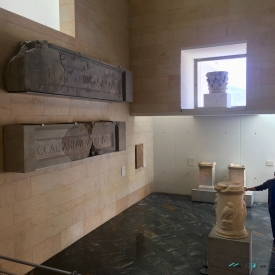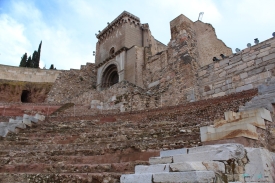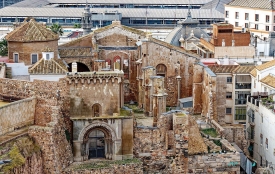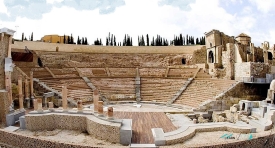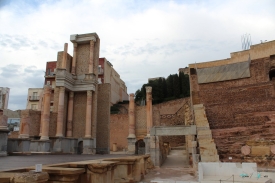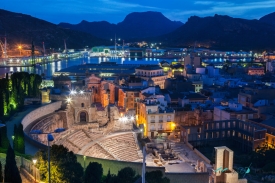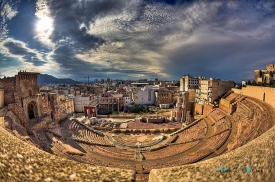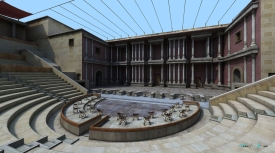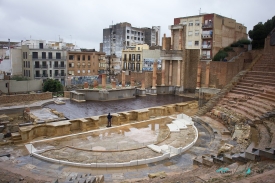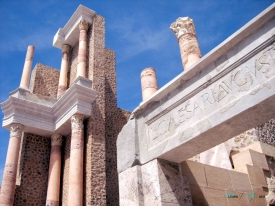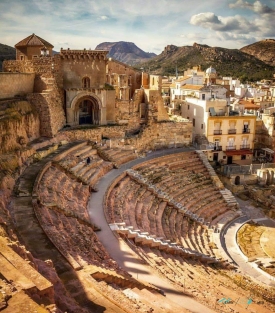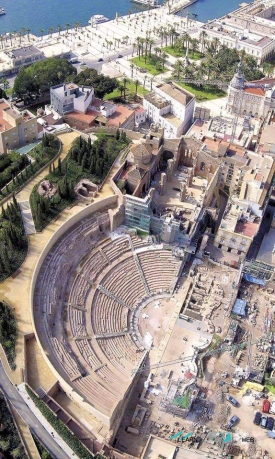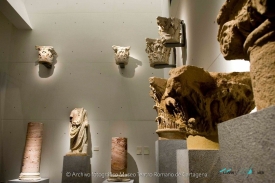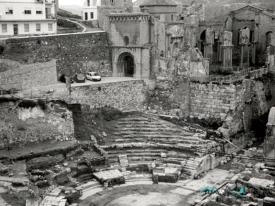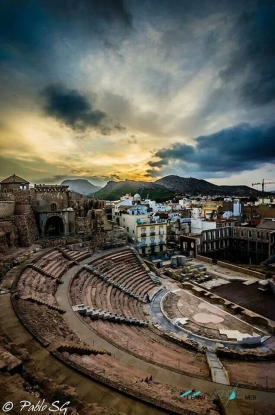The Roman Theatre of Cartagena dates back to the 1st century BC when the city was known as Carthago Nova. Constructed during the Roman Empire's rule, the theater served as a hub for entertainment, hosting various theatrical performances, gladiator contests, and public gatherings. With a seating capacity of approximately 6,000 spectators, the grandeur and architectural finesse of the structure reflected the empire's opulence and cultural refinement.
The Roman Theatre of Cartagena stands as a testament to the rich cultural heritage of Spain and the enduring legacy of the Roman Empire. With its awe-inspiring architecture and immersive visitor experiences, this archaeological marvel remains a significant attraction for cultural enthusiasts and curious minds alike. As one of Spain's most prized historical sites, the Roman Theatre of Cartagena continues to bridge the gap between the past and the present, keeping the flame of ancient history alive for generations to come.
Rediscovery and Restoration
For centuries, the Roman Theatre lay buried beneath layers of earth and debris until its accidental rediscovery in 1988. Archaeologists and historians were awestruck by this remarkable find, and intensive restoration work soon began to preserve this invaluable heritage. The meticulous restoration efforts aimed to showcase the theater's former glory while ensuring its structural integrity for future generations to marvel at.A UNESCO World Heritage Site
In recognition of its historical significance, the Roman Theatre of Cartagena was designated a UNESCO World Heritage Site in 2008. This prestigious accolade elevated its global recognition and contributed to an increase in cultural tourism, drawing visitors from across the world to behold this exceptional archaeological gem.Immersive Visitor Experience
Today, stepping into the Roman Theatre of Cartagena is akin to stepping back in time. Visitors are transported to the ancient Roman era as they traverse the well-preserved ruins, taking in the breathtaking architecture and the aura of antiquity that lingers in the air. Guided tours provide fascinating insights into the theater's history and its cultural significance, enriching the visitor experience further.Cultural Events and Performances
The Roman Theatre of Cartagena is not just a relic of the past; it serves as a vibrant venue for cultural events and performances. The amphitheater's grand stage, flanked by ancient stone walls, provides a unique backdrop for concerts, plays, and even modern-day adaptations of ancient dramas. This blend of ancient history and contemporary artistry creates a spellbinding ambiance that captivates both locals and tourists.Preserving Heritage for Future Generations
The upkeep and conservation of the Roman Theatre of Cartagena remain a top priority for the Spanish authorities. Ongoing preservation efforts aim to safeguard this cultural treasure from the erosive effects of time and environmental factors, ensuring that generations to come can continue to appreciate and learn from this piece of living history.The Roman Theatre of Cartagena stands as a testament to the rich cultural heritage of Spain and the enduring legacy of the Roman Empire. With its awe-inspiring architecture and immersive visitor experiences, this archaeological marvel remains a significant attraction for cultural enthusiasts and curious minds alike. As one of Spain's most prized historical sites, the Roman Theatre of Cartagena continues to bridge the gap between the past and the present, keeping the flame of ancient history alive for generations to come.



